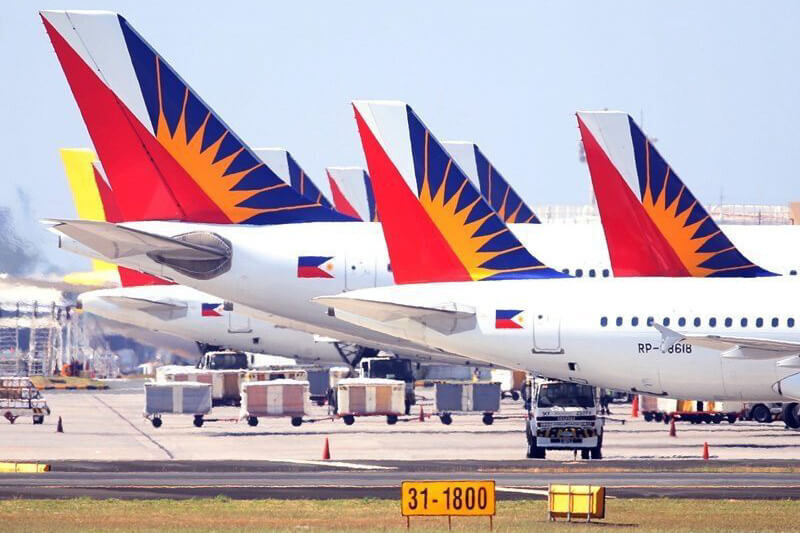
MANILA, Philippines – SAFasia, a leader in Sustainable Aviation Fuel (SAF) production and supply, and Emerging Fuels Technology (EFT), an innovative fuel technology development company, have signed a Memorandum of Understanding (MoU) to support SAF development in the Philippines. This strategic partnership is expected to bring significant progress to the decarbonization efforts of the aviation industry in Southeast Asia.
SAFasia and EFT Strengthen Cooperation to Accelerate Philippines SAF Production
This agreement between SAFasia and EFT focuses on sustainably producing SAF using the Philippines' abundant biomass resources. The Philippines possesses diverse biomass raw materials, including coconut, sugarcane, and palm oil, making it a country with very high potential for SAF production. The two companies plan to combine EFT's leading Fischer-Tropsch (FT) technology with SAFasia's expertise in the Southeast Asian market to accelerate the establishment and commercialization of SAF production facilities in the Philippines.
Fischer-Tropsch (FT) technology is a process that produces liquid hydrocarbon fuels from various carbon sources such as coal, natural gas, and biomass. This technology is particularly suitable for SAF production because it can significantly reduce carbon emissions compared to traditional fossil fuels when biomass is used as a feedstock. EFT has unique know-how and commercialization experience in this FT technology field and will play a key role in converting Philippine biomass into high-quality SAF.
Through this partnership, SAFasia plans to focus on expanding the SAF supply chain across the entire Southeast Asian region, with the Philippines as its hub. Southeast Asia is a region where the necessity for SAF adoption is increasing due to rapid growth in aviation demand and the rising importance of climate change response. SAFasia plans to strengthen cooperation with local biomass suppliers and airlines to establish a stable SAF production and supply system.
Global Aviation Industry's Decarbonization Efforts and the Importance of SAF
The International Air Transport Association (IATA) has set a goal of achieving carbon neutrality in the aviation industry by 2050, and SAF is expected to play a key role in achieving this. SAF can be blended with conventional jet fuel and can reduce greenhouse gas emissions by up to 80% throughout its entire lifecycle, from production to use. This is considered one of the most effective solutions to the climate change challenges faced by the aviation industry.
Currently, global SAF production is still at a nascent stage, but governments and airlines worldwide are expanding various policies and investments to adopt SAF. The European Union (EU) plans to progressively increase the mandatory SAF blending ratio for aviation fuel through its 'Fit for 55' package, and the United States is also providing incentives to increase SAF production. In Asia, countries like Japan, Singapore, and South Korea have established roadmaps for SAF adoption.
The Philippines, with its growing aviation industry and increasing awareness of environmental issues, also recognizes the importance of SAF adoption. This agreement between SAFasia and EFT is significant as it lays an important foundation for the Philippines to secure its own SAF production capabilities and thereby contribute to reducing carbon emissions in the aviation sector.
The Philippines' Biomass Potential and Economic Ripple Effects
The Philippines is one of Southeast Asia's leading biomass resource-rich countries. In particular, coconuts are one of the Philippines' major agricultural products, and coconut waste or residues remaining after coconut oil extraction can be utilized as promising raw materials for SAF production. Furthermore, sugarcane bagasse and by-products from palm oil production also have high potential as SAF feedstocks.
If SAF production facilities are built in the Philippines, it is expected to generate various economic ripple effects beyond simple environmental benefits. First, increased demand for biomass raw materials can contribute to increased income and job creation in the agricultural sector. Additionally, new jobs can be created during the construction and operation of SAF production facilities, promoting the co-growth of related industries. Furthermore, the Philippines could establish itself as a hub for SAF production technology and contribute to energy security in the Southeast Asian region.
Growth and Future Outlook of the Southeast Asian SAF Market
Due to its geographical characteristics, air travel is active in Southeast Asia, and air travel demand is steadily increasing with the growth of the middle class. Consequently, pressure to reduce carbon emissions in the aviation industry is also increasing, and SAF has emerged as an important challenge for airlines in the region.
Currently, Singapore and Malaysia are actively moving towards SAF adoption in Southeast Asia. Changi Airport in Singapore has already begun SAF blended fueling, and Malaysia's national oil company Petronas is also investing in SAF production. This agreement between SAFasia and EFT in the Philippines is expected to ignite the growth of the Southeast Asian SAF market.
In the long term, the Philippines is likely to emerge as a major hub for SAF production in Southeast Asia, providing a stable supply of SAF to regional airlines and playing an important role in the global SAF market. This is expected to strengthen the Philippines' energy independence and significantly contribute to national efforts for sustainable development.
This agreement between SAFasia and EFT is an important step towards a sustainable future for the aviation industry, providing the Philippines with an opportunity to play a key role in this change. Moving forward, it will be interesting to observe how the cooperation between the two companies transforms the Southeast Asian SAF market and contributes to the decarbonization of the global aviation industry.
[Copyright (c) Global Economic Times. All Rights Reserved.]






























